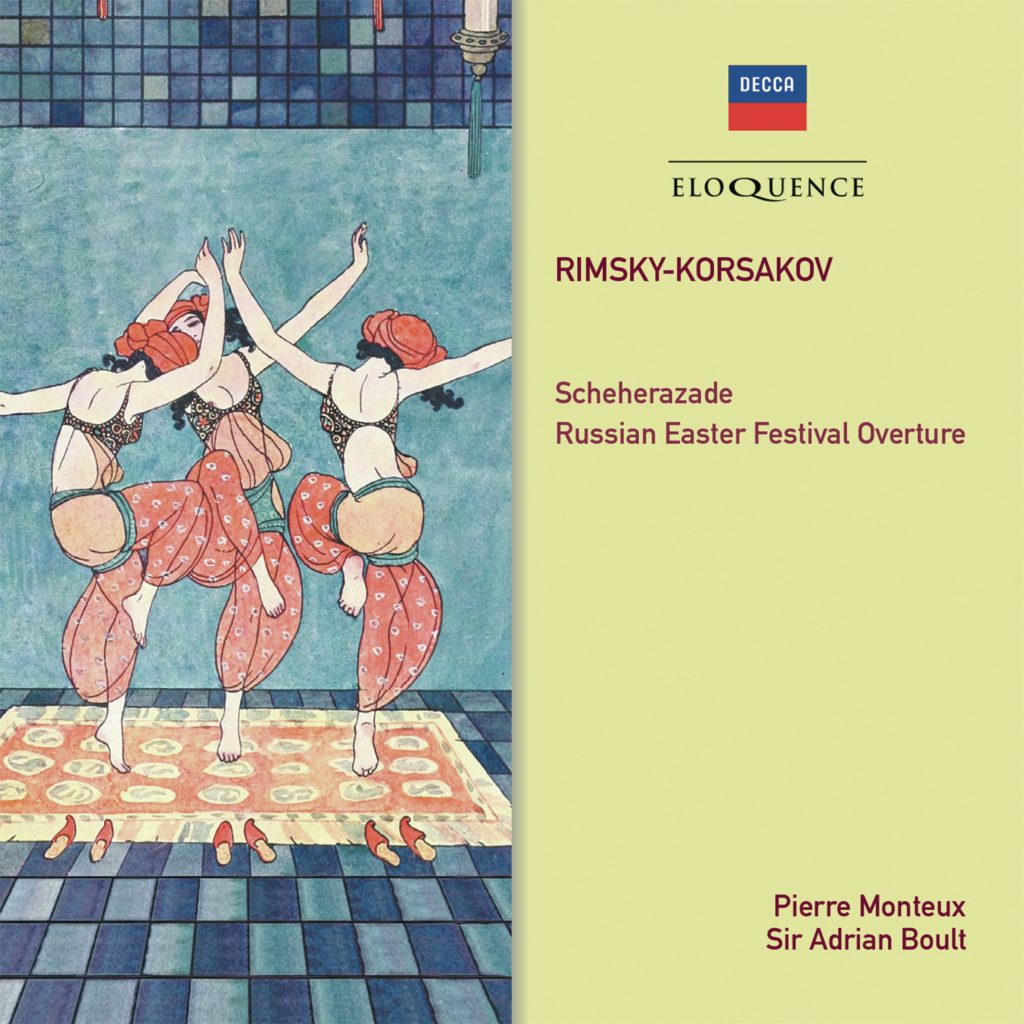In his most famous orchestral composition, ‘Scheherazade’, Rimsky-Korsakov, like Beethoven in his ‘Pastoral’ Symphony before him, was more interested in evoking feelings and impressions than in spoon-feeding listeners a pre-digested program. So the titles he provided for its four movements were indicative rather than based on particular stories from the ‘Arabian Nights’.
Pierre Monteux’s recording, taped in Kingsway Hall in June 1957, was first issued on RCA (at the time when the label had a collaborative release arrangement with Decca). Since then the recording has been repatriated to Decca who first issued it on LP in 1970 and then on CD in 1988 as part of its ‘Weekend Classics’ series. It is now restored to circulation as part of Eloquence’s on-going exploration of the recorded legacy of Monteux.
That same year, Rimsky-Korsakov also completed the ‘Russian Easter Festival Overture’, also known as ‘Bright Holiday’, in keeping with the Russian Orthodox name for Easter. Many of the melodies heard in this work were taken from the ‘Obikhod’, a collection of liturgical chants dating back many centuries and first published in 1772. Rimsky-Korsakov had a deep appreciation for Russia’s pagan and early Christian history.
Sir Adrian Boult’s recording of the Overture also hails from 1957 and like Monteux’s ‘Schehrazade’ first appeared on RCA. Decca released it in 1971 as part of its Eclipse series. This is its first release on Decca CD.
NIKOLAI RIMSKY-KORSAKOV
Scheherazade
London Symphony Orchestra
Pierre Monteux
Russian Easter Festival Overture*
London Philharmonic Orchestra
Adrian Boult
* FIRST RELEASE ON CD
Recording Producers: James Walker (Scheherazade), Christopher Whelan (Russian Easter Festival Overture)
Balance Engineers: Kenneth Wilkinson, Ken Cress
Recording Locations: Kingsway Hall, London, UK, 9 May 1957 (Russian Easter Festival Overture), 7, 11 & 13 June 1957 (Scheherazade)
‘The London Symphony Orchestra plays extremely well … Hugh McGuire is an admirable violin soloist – I was especially grateful to hear those long and very high E’s at the end so securely held… Monteux’s very great perception of the wizardry of the scoring is in its own way the equal of Beecham’s and he is specially notable for the way he builds each movement. The recording is splendid…’ (Scheherazade) Gramophone

